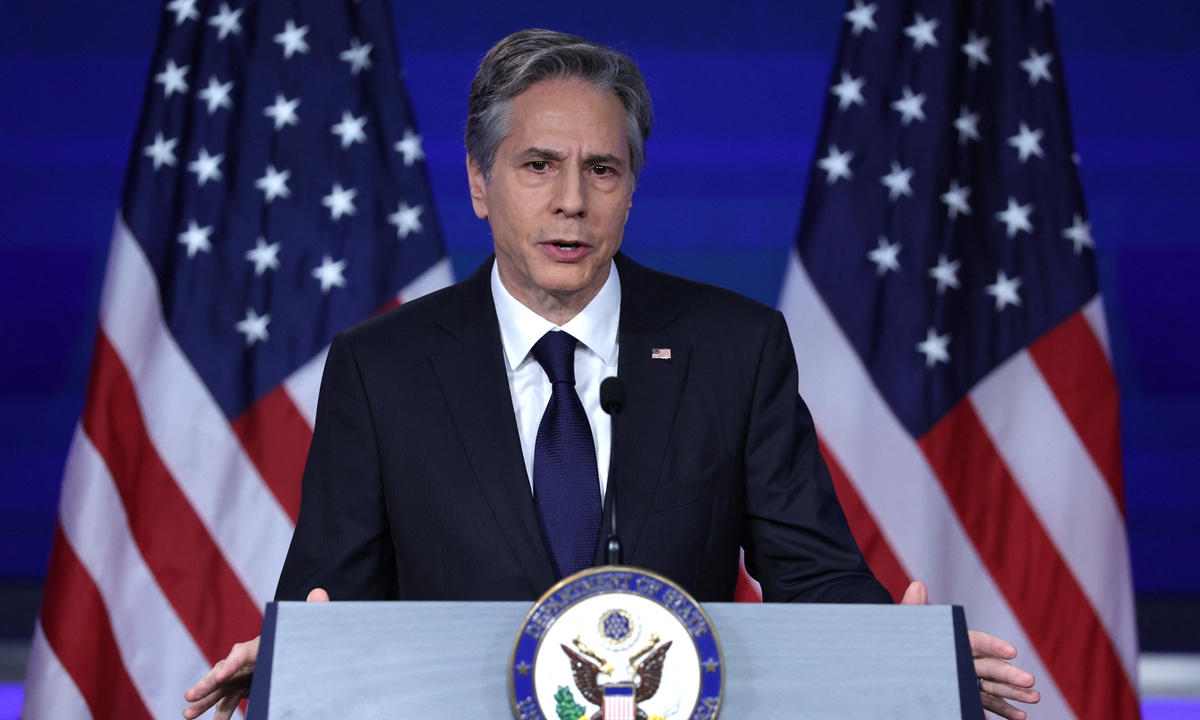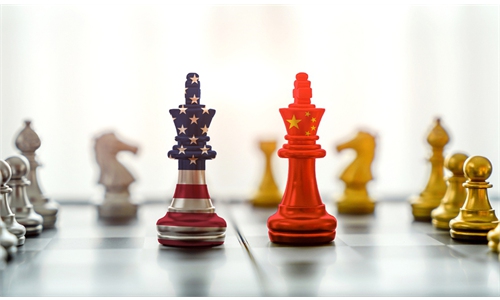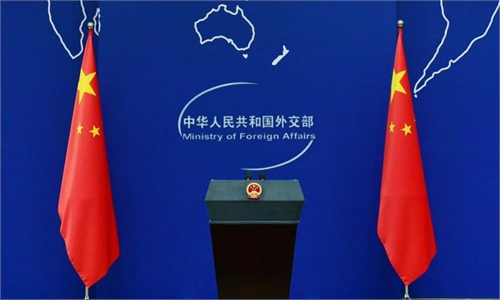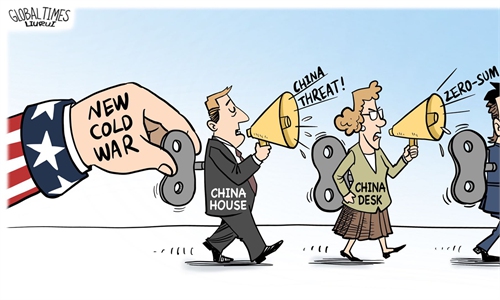Using balloon incident as an excuse for Blinken’s trip postponement shows the US lacks sincerity to improve China ties

US Secretary of State Antony Blinken speaks on China at Jack Morton Auditorium of George Washington University May 26, 2022 in Washington, DC. Photo: AFP
US Secretary of State Antony Blinken on Friday postponed his reported trip to China in response to the flying of what Washington has labelled a "spy balloon" over the US, saying the flying of the balloon "created the conditions that undermine the purpose of the trip." This is a fresh signal demonstrating that Washington is lacking sincerity in boosting its relations with China.
The Chinese Foreign Ministry clarified on Friday that the so-called spy balloon or surveillance balloon is a civilian airship used for research, mainly meteorological, purposes. "Affected by the Westerlies and with limited self-steering capability, the airship deviated far from its planned course. The Chinese side regrets the unintended entry of the airship into US airspace due to force majeure."
Even though the Pentagon said the so-called spy balloon "does not present a military or physical threat to people on the ground," or a significant intelligence gathering risk, many US politicians and media outlets have played up the "China threat" with ulterior motive, launching another round of smearing campaign against China.
"Normally, in response to an accidental incident resulting from force majeure, the two sides will move on after expressing regrets. Or they can set how to deal with such kind of incidents as a subject to negotiate. Blinken's response in postponing the trip is not a proportionate response," Lü Xiang, research fellow at the Chinese Academy of Social Sciences, told the Global Times.
Several causes can explain why Washington is so intent on hyping a civilian airship into a critical political incident. First, the bilateral ties between China and the US are still tense, with rampant anti-China forces at home. They intend to exploit the airship incident to further instigate domestic anti-China sentiment, twist China's global image into a power not abiding by international rules, a huge threat to other countries' security, so that the US can easily solidify its allies to contain China at the international stage. This mirrors how radical and perilous the US' policy toward China is.
Furthermore, the heated discussion and exaggeration of the civilian airship suggests that as political polarization intensifies, any incident will become the topic to intensify partisan contest. The so-called spy balloon has become an incident from which ambitious politicians from different political parties can gain political capital and enhance political rights. The GOP has used it as another weapon to attack the Biden administration.
And in response, branches of the US government, including the secretary of state, have to take a hawkish position, in a bid to satisfy domestic opposition forces.
Lü noted that the US government needs to remain sober and that diplomacy and internal affairs are two separated matters, and it is not wise for the US government to do nothing when the internal conflicts between two parties affect its foreign affairs.
Additionally, the timing of the hype is also delicate - ahead of a reported trip although China has not confirmed his visit. Some observers said it does not rule out that Washington deliberately select the timing, in order to add more bargaining chips in negotiating with China after putting more pressure on the latter. Such practice has become a routine of US diplomacy.
Given that a senior state department official said the US' "channels of communication will remain as important as ever. And those channels do remain open," Blinken is anticipated to complete the visit to China at a rescheduled date, said Lü.
If the US government is willing to fix China-US relations, it is capable of achieving it, including managing the sentiment toward China in Congress and the US society. The key is whether Biden team have the determination and will to improve Washington's bilateral ties with Beijing.
But judging from the US government's response to the airship incident, including Blinken postponing a reported China trip, it is short of sincerity in this regard.
A souring China-US relationship is not only detrimental to the whole world, but will backfire on Washington itself. It is hoped that Americans with insight will be alert and will not let the bilateral ties further deteriorate.
The author is a reporter with the Global Times. opinion@globaltimes.com.cn



